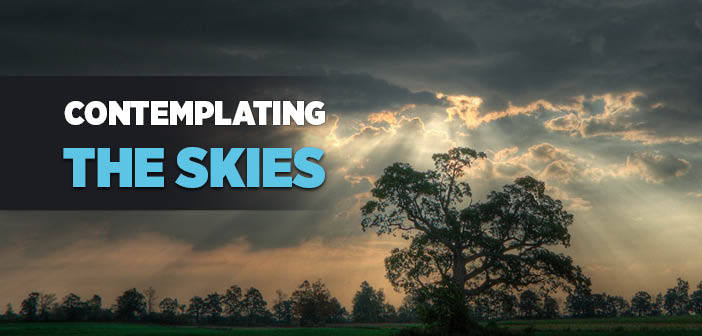Allah, glory unto Him, states that He constantly expands the flawlessly created skies. The verse declares:
“And the heaven, We raised it high with power, and most surely We are the makers of things ample.” (ad-Dhariyat, 47)
In 1929, scientists discovered that nebula[1] constantly travel further away from our galaxy, a finding later used as a basis for the theory that space is undergoing constant expansion.[2] According to this theory, doubtless one of the most significant turning points in 20th century space research, galaxies are increasingly moving away from each other in proportion with the accumulated distance.[3]
Applying this theory to the objects in space in 1950, scientists proceeded to calculate the speed with which galaxies travel away from each other. While a galaxy 10 million light years away from our own cuts loose at a speed of 250 km’s per second, the breakaway speed of a galaxy 10 billion light years away is 250,000 km’s per second.[4]
That the universe, the enormity of which is spoken of here, is ever-growing in dimension without ever remaining the same, goes to show the impossibility of perfectly comprehending the splendor of the Almighty.
Beautifully expressed is the feeling of awe that envelops one upon contemplation of these countless exhibitions of Divine Majesty:
Grand You are Lord, grand, so grand,
Greatness itself to You is a strand!
(Ali Haydar Bey)
Constantly expanding this colossal universe, Allah, glory onto Him, will eventually roll it up, just like a scribe rolls up a piece of paper.[5] Again, when the time comes, He will transform Earth to an earth of another kind, and the skies to skies of another sort.[6] This entails the creation of a new universe, signaling the beginning of a new life.[7]
[1] Nebulas are the massive white spots, apart from stars, found in space, given the name due their resemblance of whitish clouds.
[2] Celâl Kırca, Kur’ân-ı Kerîm’de Fen Bilimleri, p. 165; an-Najjâr, as-Samâ, p. 82-93; Faruk Yılmaz, Kâinâtın Yaratılışı, p. 64-67, 255-258.
[3] Şakir Kocabaş, Kur’ân’da Yaratılış, Istanbul 2004, p. 19.
[4] Prof. Dr. Osman Çakmak, Bir Çekirdekti Kâinat, p. 28.
[5] al-Anbiya, 104.
[6] Ibrâhîm, 48.
[7] See, an-Najjâr, as-Samâ, p. 82, 105-106, 187-194; http://www.biltek.tubitak.gov.tr, Evren/Evrenin Kaderi/Kapalı Evren.
Source: Osman Nuri Topbaş, Contemplation in Islam, Erkam Public.





